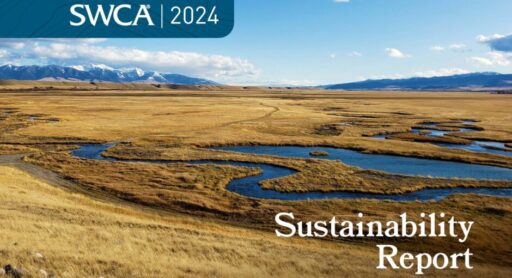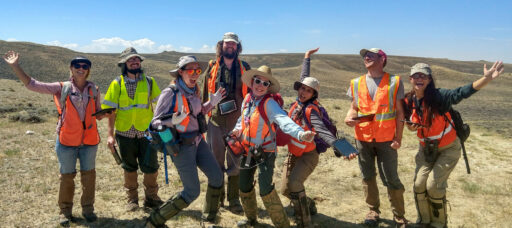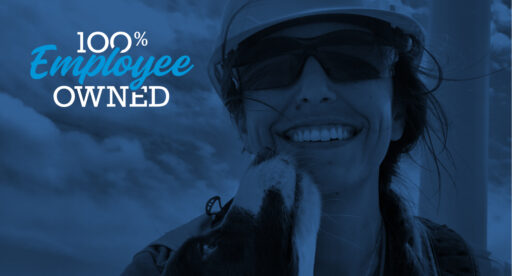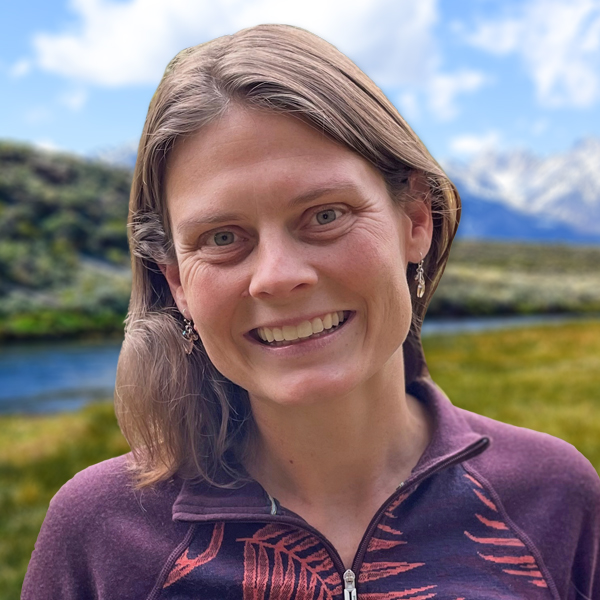2025
Comparably’s Best Company Outlook
* Providing engineering services in these locations through SWCA Environmental Consulting & Engineering, Inc., an affiliate of SWCA.

From the experts we hire, to the clients we partner with, our greatest opportunity for success lies in our ability to bring the best team together for every project.
That’s why:

At SWCA, sustainability means balancing humanity’s social, economic, and environmental needs to provide a healthy planet for future generations.

SWCA employs smart, talented, problem-solvers dedicated to our purpose of preserving natural and cultural resources for tomorrow while enabling projects that benefit people today.

At SWCA, you’re not just an employee. You’re an owner. Everyone you work with has a stake in your success, so your hard work pays off – for the clients, for the company, and for your retirement goals.
Final Rule Changes for Endangered Species Act Section 7 Consultations
Amanda Glen is SWCA’s natural resources technical director for biological services and provides strategic guidance on permitting and compliance for matters involving protected wildlife, plants, and habitats. Currently managing a national practice, she has more than 25 years of consulting experience with an emphasis on the Endangered Species Act (ESA) and how compliance with the ESA influences other regulatory programs. Her wealth of experience pertaining to endangered species issues includes research, permitting, consultations, status reviews, and conservation planning. Her experience includes negotiating compliance solutions for critically imperiled species facing potential determinations of jeopardy or adverse modification of designated critical habitats. She has led efforts to delist species no longer requiring the protections of the ESA when supported by sound science, and has been involved in voluntary conservation planning to help preclude the need to list species. Amanda frequently presents at regional and national conferences on matters related to the ESA, including new listings, regulatory and policy changes, and trends in compliance strategies.

Since joining SWCA in 2015, Nicole’s expertise in ecology, evolution, and conservation biology has led to significant contributions across nearly all service lines and ten states, cementing numerous trusted partnerships.
Nicole’s influence extends to her technical and peer-reviewed publications, with contributions to more than twenty-three scientific meetings. Notable publications include Distance Sampling Underestimates Population Densities of Dune-Dwelling Lizards in the Society for the Study of Amphibians and Reptiles Journal of Herpetology, and a study on Population Variation in Dune-Dwelling Lizards in Response to Patch Size, Patch Quality, and Oil and Gas Development published by the Southwestern Association of Naturalists, addressing impacts of patch size, quality, and oil and gas development.

Stephanie is a Senior Ecologist at SWCA, specializing in wildfire collaboratives and providing technical support to communities pre-, during, and post-wildfires across the western U.S.

Eleanor Gladding is a senior biologist and project manager in SWCA’s Tucson office. As a herpetologist and ecologist, her areas of expertise include endangered species habitat studies, revegetation planning, species-specific surveys, noxious weed issues, and wildlife-habitat relationships. She is adept at identifying plants and animals, their habitat, and signs of presence. She is also skilled at writing technical and non-technical reports and conducting the extensive literature research that accompanies writing at the professional level. Her duties as a biologist include study design, field studies and special-status species surveys, and report writing and editing.

Kely Wabnitz is a biologist and principal project management team lead specializing in complex permitting issues, is an Endangered Species Act (ESA) regulatory practitioner, and has worked throughout the country, specifically the Midwest and Great Plains, for more than two decades. Kely has outstanding experience in ESA compliance and National Environmental Policy Act (NEPA) review documentation, a thorough knowledge of the biology and conservation of listed species in the Midwest, and extensive experience assisting clients with regulatory issues throughout the country. She routinely manages challenging compliance and permitting issues related to large-scale, regional, and multistate development projects. Kely has robust experience navigating related discussions, coordination, and consultations with the U.S. Fish and Wildlife Service (USFWS), specifically in Regions 2, 3, 5, and 6, and with state public siting commissions and natural resources agencies. She has worked with clients throughout the United States and has supported the successful acquisition of state and local siting permits through development of statutorily complete applications, preparation of written testimony requiring subject matter expertise, and support during public hearings.






The U.S. Fish and Wildlife Service and National Marine Fisheries Service (Services) issued final rules that change federal interagency consultations under Section 7 of the Endangered Species Act (ESA). Key among these rule changes is a new compensatory mitigation provision that allows the Services to prescribe compensatory mitigation or offsets deemed “reasonable and prudent” for minimizing the impact of incidental take on listed wildlife. Other changes loosen interpretation of the “reasonably certain to occur” standard for identifying effects of an action subject to analysis. Read the final rule.
The new compensatory mitigation provision upends decades of prior practice and regulatory interpretation and may add cost, time, and complexity to the consultation process.
The changes removed regulatory language regarding how to interpret whether activities or consequences are “reasonably certain to occur,” potentially increasing the scope of analysis.
These changes will become effective May 6, 2024, and will be applicable to new consultations and reinitiations. Actions presently in the consultation process (i.e., those with a Biological Assessment in preparation or when consultation has been initiated but not concluded) would be subject to the new rules. These changes will not apply to completed consultations where reinitiation has not been triggered.
Running consultation timelines may be reset if analyses require substantial modification to comply with the new rules. Coordination with your federal agency representatives will be essential to an efficient transition to the new requirements and standards.
Additional guidance for completing the consultation process is expected in a new or updated Consultation Handbook, but the anticipated publication date is not known.
SWCA can help you understand what the rule changes might mean for your projects. Read the final rule.
Reach out to your project manager or to one of SWCA’s regulatory specialists for more information, insights, and strategies to keep your projects on track.